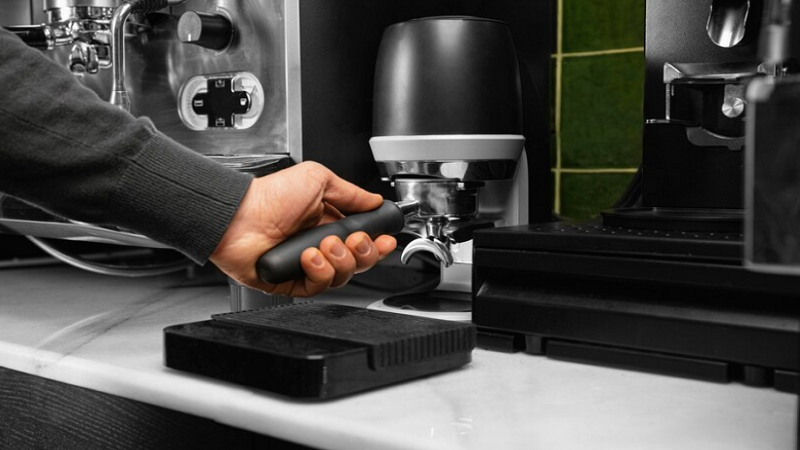In precision manufacturing, CNC (Computer Numerical Control) machines are integral to creating high-quality components across various industries. Among these, CNC lathes are crucial in shaping and machining materials into precise, functional parts. In this blog post, we’ll explore the intricacies of CNC lathe tools, their applications, and how they contribute to efficient manufacturing processes. We’ll also highlight the role of HITOP, a leading injection molding manufacturer based in China, in advancing manufacturing innovations and offering tailored engineering solutions to global clients.
What are CNC Lathe Tools?
CNC lathe tools are specialized cutting tools used in CNC lathes to machine and shape materials, typically metals, into desired forms. These tools are mounted on the lathe and controlled by computer programs that dictate their movement, speed, and the force applied during the cutting process. CNC lathe tools are essential for achieving high precision, repeatability, and efficiency in manufacturing.
Types of CNC Lathe Tools
There are various types of CNC lathe tools, each designed for specific machining tasks. Here’s an overview of the most common types:
Turning Tools: Turning tools are used to remove material from the outer surface of a workpiece. They are essential for shaping cylindrical parts and achieving precise diameters and finishes.
Boring Tools: Boring tools are designed to enlarge existing holes in a workpiece. They are used to achieve high accuracy and finish on internal diameters.
Drilling Tools: These tools are used to create holes in the workpiece. CNC lathes can perform both axial drilling (along the axis of the workpiece) and radial drilling (perpendicular to the axis).
Grooving Tools: Grooving tools are used to create narrow cuts or grooves on the workpiece. These grooves can be for decorative purposes or to prepare the part for assembly.
Threading Tools: Threading tools are used to cut threads on the internal or external surfaces of a workpiece. CNC lathes can produce both standard and custom threads with high precision.
Cut-off Tools: Also known as parting tools, these are used to cut off a finished part from the remaining material. They are essential for separating components from the stock material after machining.
Forming Tools: Forming tools are used to create specific shapes or profiles on the workpiece. These tools are often custom-made to produce unique part geometries.
Material Considerations for CNC Lathe Tools
The material of the cutting tool plays a significant role in its performance and durability. Common materials used for CNC lathe tools include:
High-Speed Steel (HSS): Known for its toughness and resistance to wear, HSS is suitable for a wide range of applications. It is often used for general-purpose cutting.
Carbide: Carbide tools are made from tungsten carbide and are known for their hardness and heat resistance. They are ideal for high-speed cutting and machining hard materials.
Ceramic: Ceramic tools are highly wear-resistant and can withstand high temperatures. They are often used in high-speed applications where tool life is critical.
Cermet: A combination of ceramic and metallic materials, cermet tools offer a balance between toughness and wear resistance, making them suitable for finishing operations.
Diamond: Diamond tools are extremely hard and wear-resistant, making them ideal for machining non-ferrous metals, composites, and ceramics. They are often used in precision machining applications.
The Role of CNC Lathe Tools in Manufacturing
CNC lathe tools are integral to various manufacturing industries, including automotive, aerospace, medical, and electronics. Their ability to produce precise and complex parts with minimal human intervention has revolutionized modern manufacturing processes. Let’s explore how CNC lathe tools contribute to different industries:
Automotive Industry
In the automotive industry, CNC lathe tools are used to produce critical components such as engine parts, transmission components, and brake systems. The high precision and repeatability of CNC lathes ensure that these parts meet stringent quality standards, contributing to the safety and performance of vehicles.
Aerospace Industry
The aerospace industry demands high-precision components with tight tolerances. CNC lathe tools are essential for machining complex parts like turbine blades, landing gear components, and structural elements. The ability to machine exotic materials, such as titanium and Inconel, with CNC lathe tools, is crucial for producing durable and lightweight aerospace parts.
Medical Industry
The medical industry requires precision and consistency in the manufacturing of medical devices and implants. CNC lathe tools are used to machine components such as surgical instruments, prosthetic joints, and dental implants. The ability to produce intricate and biocompatible parts is vital for ensuring the safety and efficacy of medical products.
Electronics Industry
In the electronics industry, CNC lathe tools are used to machine components like connectors, housings, and heat sinks. The precision of CNC machining ensures that electronic components fit together seamlessly, improving the reliability and performance of electronic devices.
Household Appliances
CNC lathe tools are also used in the production of household appliances, such as washing machines, refrigerators, and kitchen equipment. These tools are essential for machining components like shafts, gears, and motor parts that require high precision and durability.
Innovations in CNC Lathe Tools
The field of CNC lathe tools is continuously evolving, with innovations aimed at improving machining efficiency, tool life, and part quality. Some of the latest advancements include:
- Advanced Coatings
Coatings play a significant role in enhancing the performance of CNC lathe tools. Advanced coatings, such as Titanium Nitride (TiN), Titanium Aluminium Nitride (TiAlN), and Diamond-Like Carbon (DLC), provide improved wear resistance, reduced friction, and increased tool life. These coatings allow tools to perform better in high-speed machining applications and extend the intervals between tool changes.
- High-Speed Machining
High-speed machining (HSM) involves using CNC lathe tools at higher spindle speeds and feed rates, resulting in faster material removal and reduced cycle times. This technique requires tools with superior heat resistance and stability to maintain accuracy and surface finish at high speeds. The development of carbide and ceramic tools has enabled significant advancements in high-speed machining.
-
Micro-Machining
Micro-machining involves machining extremely small and precise components, often in the range of micrometers. CNC lathe tools for micro-machining are designed with ultra-fine cutting edges and specialized geometries to achieve high precision in small-scale parts. This technology is crucial for industries like electronics, medical devices, and micro-electromechanical systems (MEMS).
- Tool Monitoring and Diagnostics
Modern CNC lathe machines are equipped with advanced tool monitoring and diagnostic systems that provide real-time feedback on tool condition, wear, and performance. These systems use sensors and software to detect issues such as tool wear, breakage, or vibration, allowing operators to take corrective actions before part quality is compromised. Tool monitoring helps reduce downtime, extend tool life, and improve overall machining efficiency.
- Smart Tooling
Smart tooling refers to CNC lathe tools embedded with sensors and communication capabilities that enable them to interact with CNC machines and other tools in real-time. These tools can provide data on cutting conditions, tool wear, and temperature, allowing for adaptive machining processes. Smart tooling is a key component of Industry 4.0, where interconnected systems and data-driven decision-making are transforming manufacturing.
HITOP: A Leader in Injection Molding and Precision Manufacturing
As a leading injection molding manufacturer based in China, HITOP stands out for its commitment to innovation, quality, and personalized service. With a global client base, HITOP offers a wide range of services, including mold design, rapid prototyping, injection molding, and more. The company specializes in creating durable, high-performance molds that cater to various industries, including automotive, medical, electronics, household appliances, and aerospace.
HITOP’s Expertise in Manufacturing Innovations
HITOP has invested heavily in advanced manufacturing technologies, including CNC machining, to ensure that its clients receive the highest quality products. The company’s expertise in mold design and precision machining allows it to create molds that meet the most demanding specifications. Whether it’s producing complex medical devices or high-precision automotive components, HITOP leverages the latest CNC lathe tools and machining techniques to deliver superior results.
Personalized Service and Custom Solutions
One of the key factors that set HITOP apart is its commitment to personalized service. The company works closely with its clients to understand their specific needs and provide tailored solutions. From the initial concept to the final product, HITOP ensures that every step of the manufacturing process is optimized for quality, efficiency, and cost-effectiveness.
Serving Diverse Industries with Excellence
HITOP serves a wide range of industries, each with its unique set of challenges and requirements. In the medical industry, the company’s precision molds are used to produce surgical instruments and implants that meet the highest standards of safety and performance. In the automotive and aerospace sectors, HITOP provides durable and lightweight components that contribute to the efficiency and reliability of vehicles and aircraft. The company’s expertise in electronics and household appliances ensures that its clients receive components that are both functional and aesthetically pleasing.
Commitment to Quality and Sustainability
Quality and sustainability are at the core of HITOP’s operations. The company adheres to stringent quality control processes to ensure that every product meets or exceeds industry standards. Additionally, HITOP is committed to sustainable manufacturing practices, reducing waste, and minimizing environmental impact. This commitment not only benefits the environment but also helps clients achieve their sustainability goals.
Conclusion
CNC lathe tools are an essential component of modern manufacturing, enabling the production of high-precision parts across various industries. As manufacturing technology continues to evolve, innovations in CNC lathe tools will play a crucial role in improving efficiency, quality, and sustainability.
HITOP, as a leading injection molding manufacturer based in China, exemplifies the integration of advanced manufacturing technologies with a commitment to personalized service and quality. By leveraging cutting-edge CNC lathe tools and machining techniques, HITOP provides its global clients with innovative and reliable solutions that meet the demands of today’s competitive markets.
For businesses in the medical, electronic, household appliances, aerospace, and automotive industries, partnering with a trusted manufacturer like HITOP ensures access to top-notch manufacturing solutions that drive success and innovation. Whether you’re looking for precision molds, rapid prototyping, or complete manufacturing services, HITOP is well-equipped to meet your needs with excellence and expertise.









